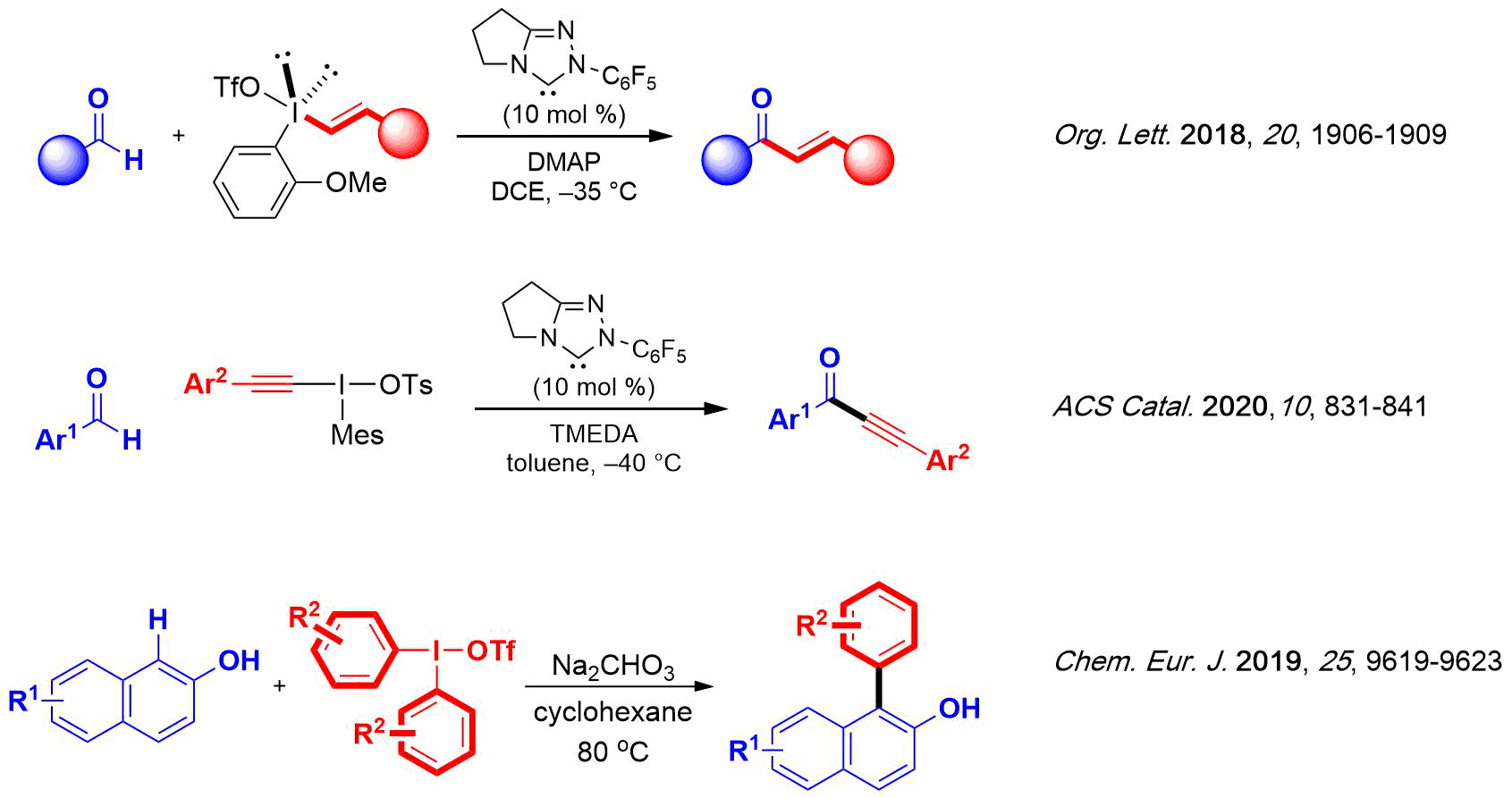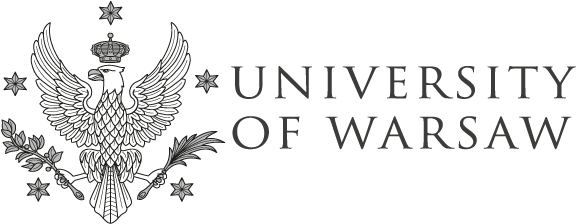Synthetic Methodology Development
The central objective of our research is to develop novel, highly useful synthetic methods based on the use of hypervalent iodine species. Despite the fact that the initial discoveries of hypervalent iodine compounds were made more than 100 years ago, this class of chemicals attracted attention relatively recently and it is currently a very active “hot” area of research in synthetic organic chemistry. The peciuliar properties of hypervalent iodine enable reactions that lead to a rapid increase in the molecular complexity during a single synthetic step and open convenient access to complex molecular architectures encountered in natural products and pharmacologically important compounds. The key advantages of the hypervalent iodine reagents are also their low toxicity and low price.
Group-transfer reactions
We have developed a series of C–H functionalization reactions, wherein groups such as aryl, vinyl, and propargyl are transferred from I(III) reagents onto organic acceptors. Two of the processes are promoted by N-heterocyclic carbene (NHC) catalysts, allowing for a conversion of aldehydes into the corresponding vinyl and propargyl ketones. The combination of hypervalent iodine reagent and organocatalyst creates an excellent match as both these chemicals share the attribute of being inherently environmentally benign. We have also introduced a method for a direct transition metal-free arylation of 2-naphthols with diaryliodonium salts.

I(III)-promoted oxidations
A part of our research program is devoted to the development of novel oxidation reactions promoted by iodine(III) species, resulting in the formation of new C–C and C–heteroatom bonds. These include asymmetric transformations, which either employ catalytic chiral iodoarenes, reoxidized in situ with a suitable terminal oxidant, or alternatively chiral organocatalysts.


